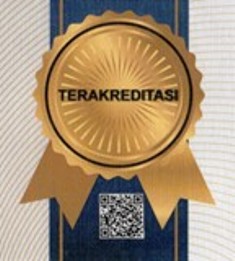Social Education Management of Cultural Tourism Objects Post Covid-19 in Aceh Province, Indonesia
Abstract
This study aims to describe about; 1) the implementation of the social education model for managing cultural tourism objects after Covid 19, 2) the effectiveness of the social education model for managing cultural tourism objects after Covid 19 using the tourism awareness education module. This type of research is Research and Development (R&D) research using the ADDIE model. The subject of the development is the community as a tourism-aware group of the Makam Syuhada Lapan amounting to 20 people. The sampling technique used incidental sampling. The results showed that; 1) implementation of the social education model for managing cultural tourism objects through the following stages: a) prospective participants, b) selection of prospective participants, c) socialization of the introduction of tourism awareness learning programs using modules, d) implementation of tourism awareness learning programs, e) mentoring. 2) The effectiveness of social education in managing cultural tourism objects using modules is considered effective in terms of improving learning outcomes in group 1 and group 2. This proves that social education has been effective in providing awareness to the public in managing cultural tourism objects
Downloads
References
[2] Huang, Chaolin; Wang, Yeming; Li, Xingwang; Ren, Lili; Zhao, Jianping; Hu, Yi; Zhang, Li; Fan, Guohui; Xu, Jiuyang; Gu, Xiaoying; Cheng, Zhenshun. Clinical Features of Patients Infected with 2019 Novel Coronavirus in Wuhan, China". ISSN 0140-6736. PMID 31986264. 2020.
[3] Lai CC, Shih TP, Ko WC, Tang HJ, Hsueh PR. Severe Acute Respiratory Syndrome Coronavirus 2 (SARS-CoV-2) and Coronavirus Disease-2019 (COVID-19): The Epidemic and The Challenges. International Journal of Antimicrobial Agents: 105924. 2020.
[4] Velavan, Thirumalaisamy P.; Meyer, Christian G. The COVID-19 Epidemic. Tropical Medicine & International Health: 278–280. 2020.
[5] Ying-Hui; Cai, Lin; Cheng, Zhen-Shun; Cheng, Hong; Deng, Tong; Fan, Yi-Pin; Fang, Cheng; Huang, Di; Huang, Lu-Qi; Huang, Qiao; Han, Yong. A Rapid Advice Guideline for The Diagnosis and Treatment of 2019 Novel Coronavirus (2019-nCoV) Infected Pneumonia. Military Medical Research. 7 (1): 4. 2020.
[6] Hermon.D.2020. How Is Covid-19 Mitigation In Indonesia? Sumatra Journal of Disaster, Geography and Geography Education, Vol. 4, No. 1, pp. 1-4. ISSN: 2580 - 4030 (Print) 2580 - 1775 (Online), Indonesia.
[7] Baum, T. (2007). Human Resources in Tourism: Still Waiting for Change. Tourism Management, 28(6), 1383-1399.
[8] Department of Culture and Tourism, (2016). Pedoman Kelompok Sadar Wisata. Jakarta: Kementrian Pariwisata.
[9] Treephan, P; Visuthismajarn.P; Isaramalai, A.S; 2019.A Model of Participatory Community-Based Ecotourism and Mangrove Forest Conservation in Ban Hua Thang, Thailand. African Journal of Hospitality, Tourism and Leisure, Volume 8 (5) - (2019) ISSN: 2223-814X.
[10] Dyer, L., & Ericksen, J. (2006). Dynamic organizations: Achieving marketplace agility through workforce scalability. CAHRS Working Paper, 06e12.
[11] Nicolaides, A. & de Witt, L. (2015b). Corporate social responsibility and stakeholder needs, in Management Innovation and Entrepreneurship: A Global Perspective, April 2015: Book Chapter 2: Edited by Demetris Vrontis, Georgia Sakka and Monaliz Amirkhanpour, Cambridge Scholars Publishing: UK.
[12] Husen, J. M, Novalita, R. Sriwahyuni. 2022. Analysis of Community Based Aspects as Social Education for Successful Management of Cultural Tourism Object After The Covid 19 Pandemic In Bireuen Regency. Aceh Province. Sumatra Journal of Disaster, Geography and Geography Education. Volume 6. No.2 (2022) ISSN: 580-4030.
[13] Benaraba, C. M. D., Bulaon, N. J. B., Escosio, S. M. D., Narvaez, A. H. G., Suinan, A. N. A. & Roma, M. N. (2022). A Comparative Analysis on the Career Perceptions of Tourism Management Students before and During the COVID-19 Pandemic. Journal of Hospitality, Leisure, Sport and Tourism Education, 30, 100361.
[14] Lambulira, M.,Banda, S., Mhango,M.K.G., Bello.G.F.(2022) Students’ Perceptions Towards Tourism Education and Careers After the COVID-19 Pandemic in Sub-Saharan Africa. African Journal of Hospitality, Tourism and Leisure Vol 11, No 3, pp. 1158-1172.
[15] Novalita, R, Barlian, E., Muchtar, B., & Syah, N. (2018). Design of a Tourism awareness education module for tourism attraction manager in Agam District, West Sumatra. African Journal Hospitality, Tourism and leasure. Volume (3) - (2018) ISSN: 2223-814X.
[16] Novalita, R. (2019) Praktikalitas Modul Pendidikan Sadar Wisata Bagi Pengelola Objek Wisata Berbasis Masyarakat Di Kabupaten Agam Sumatera Barat. Jurnal Spasial, Volume 6, Nomor 2, 20119: 62-67.https://doi.org/10.22202/js.v6i2.3749. 2019.
[17] Novalita, R. 2021. Adria, W. M., Ahyuni, Rezki, A., The Efectiveness of The Tourism Awareness Education Model For Community-Based Tourism Object Managers In Agam Distric, Sumatra Barat Indonesia. Journal Geografi. Volume 13. No.2.p ISN: 2085-8167.
[18] Dick, W. & Carey, L. (2001). The Systematic Design of Instruction. United States: Addison-Wesley Educational Publishers Inc.
[19] Morrison, G. R. (2010). Designing Effective Instruction (6th Edition.). John Wiley & Sons.
[20] Nadiyah, R.S. & Faaizah, S. (2015). The Development of Online Project Based Collaborative Learning using ADDIE Model. Procedia - Social and Behavioral Sciences , 195, 1803 – 1812. doi: 10.1016/j.sbspro.2015.06.392
[21] Arikunto, S. (2006). Prosedur Penelitian: Suatu Pendekatan Praktik. Edisi Revisi VII. Jakarta:PT Rhineka Cipta.
[22] Puwanto, M. Ngalim. (2009). Prinsip-Prinsip dan Teknik Evaluasi pengajaran. Bandung: Remaja Rosdakarya.
[23] Waani, F.H, 2016. Sosial Budaya Dalam Pengembangan Pariwisata Di Kelurahan Bunaken Kecamatan Bunaken Kota Manado. Jurnal Acta Diurna. Volume V. No.2. Tahun 2016.
[24] Spillane.J.J. 1991, Kebijasanaan Umum Pengembangan Industri Pariwisata serta Prospek dan Tantangannya. Jakarta: Widya Dharma.
[25] Sihombing, U. (2001) Pendidikan Luar Sekolah Managemen Strategi. Jakarta: PD. Mahkota
[26] Budiono, E., & Susanto, H. (2006). Penyusunan dan Penggunaan Modul Pembelajaran Berdasar Kurikulum Berbasis Kompetensi Sub Pokok Bahasan Analisa uantitatif Untuk Soal-soal Dinamika Sederhana Pada Kelas X Semester 1 SMA. Jurnal Pendidikan Fisika Indonesia, 4(2), 79–87. Retrieved from https://journal.unnes.ac.id/nju/index.php/JPFI/ article/view/166.
[27] Ardianti, D. Anabuliandari, S, Wanabuliandario, S, Alimah, S. 2019. Respon Siswa dan Guru Terhadap Modul Ethno-Edutainment di sekolah Islam Terpadu Vol. 14, No. 1. Edukasia: Jurnal Penelitian Pendidikan Islam.
[28] Reichenberger, I. & Raymond, E. M. (2021). Students’ Perceptions of Tertiary Tourism Education and Careers during the COVID-19 Pandemic. Journal of Teaching in Travel and Tourism, 21(4), 380–402.
[29] McCartney, G., Ung, C. O. L. & Pinto, J. F. (2022). Living with COVID-19 and Sustaining a Tourism Recovery—Adopting a Front-Line Collaborative Response between the Tourism Industry and Community Pharmacists. Tourism and Hospitality, 3(1), 47-68.
[30] Seyedabolghasemi, M. A., Kilic, H., Avci, T., Eluwole, K. K. & Lasisi, T. T. (2022). Residents’ Perceptions of Sustainable Tourism Destination Recovery: The Case of Northern Cyprus. Land, 11(1), 11010094.
[31] Sungkono, S. (2009). Pengembangan dan Pemanfaatan Bahan Ajar Modul Dalam Proses Pembelajaran. Majalah Ilmiah Pembelajaran, Mei (1), 1–13. Retrieved from https://journal. uny.ac.id/index.php/mip/article/view/6154/5341.
[32] Lent, Robert W. (2015). Applying the social cognitive model of career self-management to career exploration and decision-making. Journal of Vocational Behavior http://dx.doi.org/10.1016/j.jvb.2015.12.007
[33] Ali, R. (2005). Develope and Effectiveness of Modular Teaching in Biology at Secondary Level. Thesis S3 University of Arid Agriculture. Rawalpindi, Pakistan.
[34] Novalita, R. Dewi, S. L,. Zahara, Zuhra, F. (2021). Identification of Lake Tarusan As a Nature Tourism Destination in Agam District West Sumatra. Sumatra Journal of Disaster, Geography and Geography Education. Volume 5. No.2 (2021) ISSN: 580-4030.
[35] Darwance, Haryadi. D, Fahria. I, Samudra. A, Ramadhanty. S, Erika. 2019. Cultural Based Tourism Development In Pasir Putih Village Tukak Sadai District, Bangka Selatan Regency Through Agik Barik Festival. International Journal of Social, Politics, and Humanities Volume 2. No.2. (2019) ISSN: 2622-8335.
[36] Murtini. I, Zubaidah. S., Listyorini.D. 2020. "Improving students’ cognitive and critical thinking skills through research-based cell division control module", AIP Publishing, https://doi.org/10.1063/5.0000789







